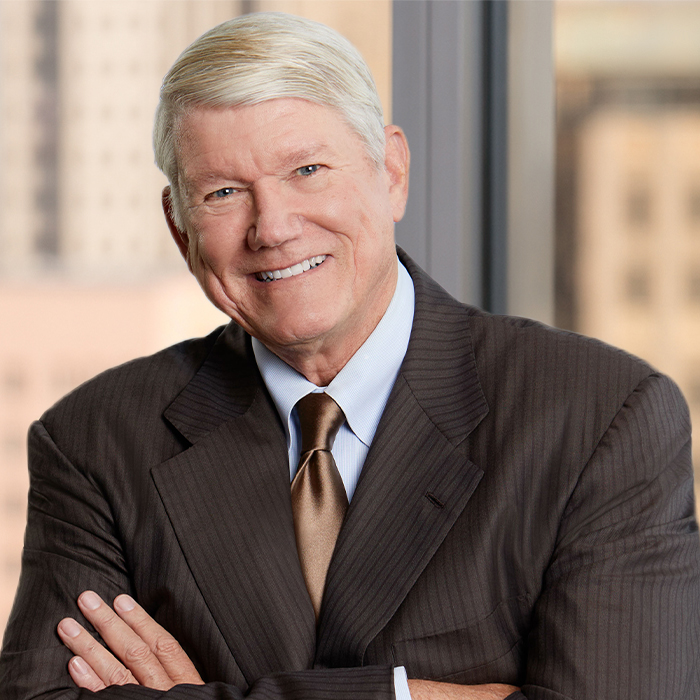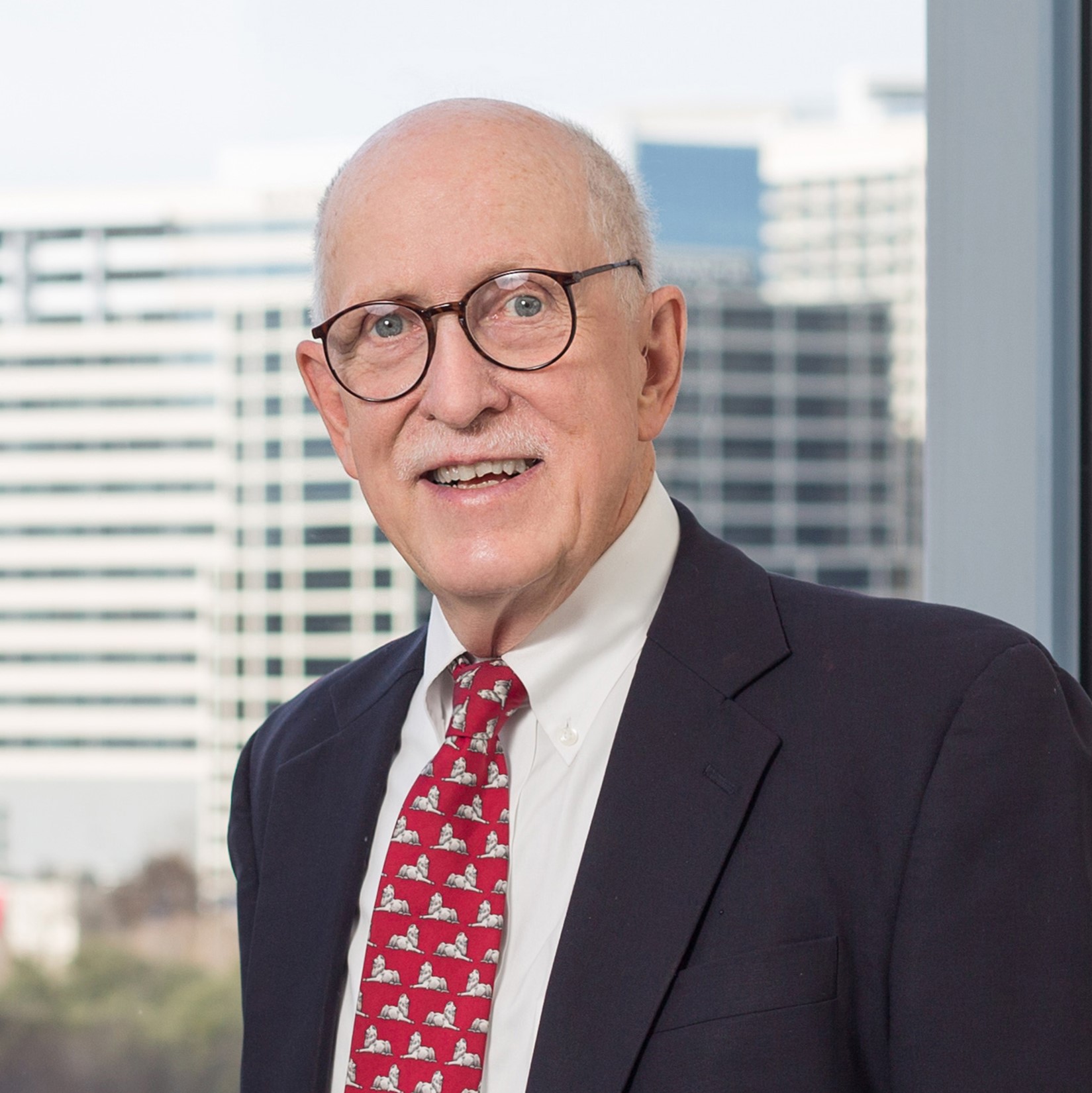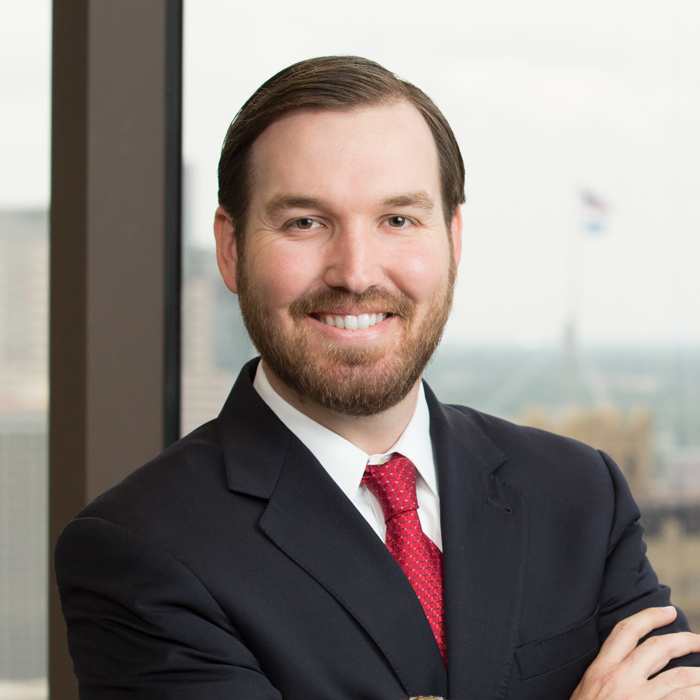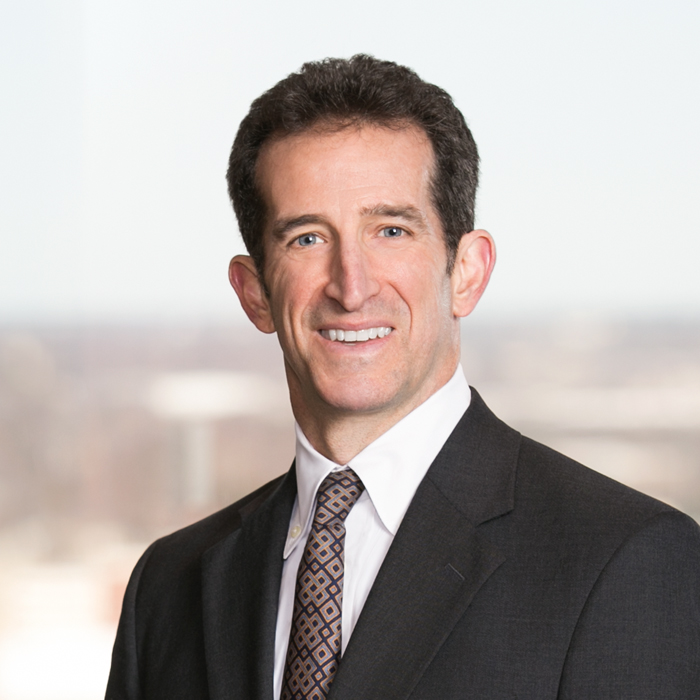During the first quarter of 2019, local and national news publications featured insights from 11 Jackson Walker attorneys on a variety of matters, ranging from safety in the aviation industry for pets to the importance of self-care for attorneys.
January 2019
Scott Schepps on Estate Planning for Pets
In the February 2019 edition of Chicago Tribune’s Retire Ahead newsletter, wealth planning partner Scott A. Schepps discussed the topic of pet estate planning and how the law factors in.
“This issue comes up fairly often with my clients,” he said. “I think in Texas people like their animals a lot and are worried about what’s going to happen to their dog or cat, or if they become incapacitated or die.”
In Texas, the law considers pets as assets, and assets cannot receive inheritances. One option, Scott noted, is to “leave your pet to a person in your will, and additionally leave that person a sum of money. Most people are lucky enough to have someone willing to take on that role and take care of the pet. I tell my clients to talk to them ahead of time to make sure they are willing to uphold their wishes.”
Scott also advised drafting a “side letter” to the will that includes any wishes – including feeding, healthcare, and exercise – for the pet, then sharing that letter with the caretaker.
To read the full article, see “Have a Plan for Your Pets” in the February 2019 edition of the Retire Ahead newsletter.
For over 25 years, Scott has helped clients structure their estates so that assets pass in a manner that meets their desires, reduces the potential for conflict, and minimizes gift, estate, and income taxes. His clients include closely held business owners, corporate executives, real estate developers, and private equity firm principals. Scott’s practice covers most aspects of wealth planning and probate, including the preparation of Wills, incapacity documents, and revocable and irrevocable trusts. He is Board Certified in Estate Planning and Probate Law by the Texas Board of Legal Specialization.
February 2019
Byron Egan on Merger Dispute
With two national insurance companies at odds after terminating their $54 billion merger, Corporate & Securities partner Byron F. Egan provided insights regarding the Delaware court system and the role “best efforts” plays in the trial.
“Certainly, how Delaware’s courts approach and analyze best efforts duties will affect everybody, so that’s probably why there’s so many people watching that case,” Byron said. “Best efforts, reasonable best efforts, commercially reasonable efforts—how you phrase—that’s highly negotiated. So what a court thinks that language means in a particular case is going to be important to a lot of lawyers, because we’re all going to deal with it.”
He added: “The magnitude of the issues in this case, the dollars and cents associated with it, is not what most lawyers, most of the time, will do. In fact, even lawyers in this case don’t usually handle cases like this. It’s certainly a flagship in terms of magnitude, but the issues are common in a lot of transactions.”
“Best efforts, reasonable best efforts, commercially reasonable efforts—how you phrase—that’s highly negotiated.”
Byron is experienced in business entity formation and governance matters, M&A, and financing transactions in a wide variety of industries, including energy, entertainment, financial, insurance, restaurant, and technology. He advises boards of directors and their audit, compensation, and special committees with respect to fiduciary duty and other corporate governance issues, the Sarbanes-Oxley Act, special investigation, and other issues. In 2018, he published the second edition of EGAN ON ENTITIES: Corporations, Partnerships and Limited Liability Companies in Texas, a treatise on the Texas Business Organizations Code.
For the full story, view Law360’s “Anthem-Cigna Trial To Weigh ‘Best Efforts’ On Failed Deal.”
Reagan Marble on the Future of Oil & Gas
Following the U.S. Energy Information Administration’s prediction that production from the Eagle Ford Shale will peak in 2021 before flattening out until at least 2050, the San Antonio Business Journal sought insights from Jackson Walker associate Reagan M. Marble regarding the potential impact on landowners.
“These are all farmers and ranchers who, for the most part, weren’t used to massive amounts of wealth. So they have saved a large portion of it over the past eight years,” Reagan said.
In his practice, Reagan focuses on complex energy litigation and transactions. In his energy litigation practice, he regularly represents oil and gas operators, mineral and royalty buyers, high‐net‐worth family trusts and partnerships, and renewable energy developers in their litigation matters throughout South and West Texas. In his energy transactions practice, Reagan frequently drafts and negotiates agreements affecting all aspects of upstream oil and gas exploration and production including oil and gas leases, purchase and sale agreements, farmouts, and joint operating agreements.
Since prices and production in the Eagle Ford plummeted at the end of 2018, Reagan said that conversations with his clients have centered around the impact of the recent downturns. With their focus on recent events, that leaves little concern for what will happen as far out as 2021.
Reagan added: “The one issue we don’t really talk about is: You’re going to have a lot less money coming in the door.” His advice to landowners is to check their pay stubs.
“One of the things I’d advise higher-net worth clients to do in anticipation of a downturn is to pay attention to whether the oil and gas company is in any sort of distress,” he said. “From a financial perspective, times of distress for a lessee are often advantageous for the lessor, the landowner.”
Carolyn Mitchell on Healthcare Policy
Two months into the new year, Managed Healthcare Executive presented four trends shaping healthcare in 2019, including consolidation of payers and providers, a rise in consumerism, technological advances, and integrating care based on population health. With respect to the topic of consumerism, healthcare senior counsel Carolyn L. Mitchell shared how a newly proposed HHS rule requires drug companies to give list prices for their products in television ads.
“The HHS proposal will require direct-to-consumer television advertisements for prescription drugs and biological products paid for by Medicare or Medicaid to include the list price in certain situations,” Carolyn said. “If a manufacturer’s list price for a prescription drug is greater than $35 for a one-month supply, or the usual course of therapy, then TV ads must include the price.”
In her practice, Carolyn applies her previous experience working closely with physicians, allied healthcare providers, healthcare venders, and hospital administration. She also offers clients particular experience working with physicians, physician groups, and healthcare organizations to construct beneficial, legally compliant, and sustainable relationships.
Bruce Ruzinsky on Chapter 11 Bankruptcy Filing
As Payless ShoeSource looks to sell over 2,500 leases across the U.S. and Canada after filing for Chapter 11 bankruptcy protection, Bankruptcy Chair Bruce J. Ruzinsky discussed the competitive retail market.
“With so many competitors, companies with too much debt and companies that are not generating enough revenue are in trouble. It’s a bad combination,” he said.
A partner in the Houston office, Bruce represents financial institutions, corporations, and other business entities in workout/restructure efforts, chapter bankruptcy proceedings, and litigation. For over 30 years, he has represented creditors, creditors’ committees, trustees, debtors, landlords, and asset purchasers in various industries and business environments, including energy, real estate, healthcare, shipping, manufacturing, transportation, retail, entertainment, wholesale produce, and personal services.
For more information about Payless filing for Chapter 11 bankruptcy, read CoStar’s “Payless Hires Firm to Offer Retail Spots in US, Canada, Potentially at a Discount.” To explore Jackson Walker’s bankruptcy and reorganization experience, visit our Bankruptcy, Restructuring, & Recovery practice page.
March 2019
Chip Babcock on Traveling With Southwest Airlines
In a Texas Lawyer article exploring how Southwest Airlines has changed the legal landscape in Texas, Houston partner Charles “Chip” L. Babcock discussed his long history with the airline as cases took him around the state.
“I had both Dallas and Houston cases. Frankly, I couldn’t have done it without Southwest Airlines,” he said.
One case that came to mind was Chip’s representation of a Dallas Times Herald reporter who was covering the trial of Fort Worth millionaire T. Cullen Davis on a murder-for-hire charge involving his estranged wife and the judge who oversaw their divorce. The newspaper called Chip because the reporter had been subpoenaed to testify at the trial, which would preclude her from being in the courtroom to cover the trial.
“I whipped up a motion to quash the subpoena and got on Southwest out of Dallas,” he said. “I couldn’t have gotten to the hearing except for Southwest Airlines.”
To read the article, see Texas Lawyer’s “The Southwest Effect: How the Airline Changed the Legal Landscape in Texas.”
Chip’s practice experience includes bet-the-company litigation, First Amendment litigation, commercial litigation, intellectual property litigation, government investigations, media litigation, and appellate litigation. Chip has represented individuals such as Warren Buffet, Oprah Winfrey, and Dr. Phil McGraw. His corporate clients have included ORIX USA, Celanese Corp, Fox News Network, CNN, Google, CBS Television Studios, Vantage Drilling International, Warner Brothers Pictures, New Line Cinema, 3M Corporation, and OWN: The Oprah Winfrey Network. In addition to receiving the Ronald D. Secrest Outstanding Trial Lawyer Award from the Texas Bar Foundation, Chip has been named a “25 Greatest Texas Lawyer of the Past Quarter Century” by Texas Lawyer and a Fellow of the American College of Trial Lawyers.
Stephanie Sparks on Self-Care
In an ABA Journal article exploring the impact of self-care on the lives of mothers who practice law, litigation partner Stephanie Collett Sparks shared how she gradually began to set aside time to take proper care of herself.
During the first five years of balancing motherhood and practicing litigation full time, she didn’t see how she could practice self-care.
“My mindset was that I would have to get caught up with all of my to-do lists at the office plus all of my to-do lists for my children before I could even contemplate doing something as frivolous as self-care,” she said.
After a string of events snowballed, she realized a change was needed.
“I took baby steps—making doctor appointments that I had needed for years, trying workout classes and reading books for pleasure. I had to choose to prioritize these activities and literally schedule them in my Outlook calendar,” Stephanie noted.
As she began to engage in self-care activities, she found she had more focus and increased productivity levels. Over time, she said she “finally realized that if I take care of myself, then I can better take care of my family and clients.”
“I finally realized that if I take care of myself, then I can better take care of my family and clients.”
To read the full article, view ABA Journal’s “Self-care isn’t selfish and can actually help your performance.”
Stephanie is a business attorney focusing on commercial litigation, healthcare, and energy transactional and regulatory practice. For over 10 years, she has successfully helped represent clients in arbitrations, trials, and in achieving favorable pre-trial resolution to litigation matters. Stephanie also represents and counsels clients on complex transactional and regulatory matters in the energy and healthcare industries. Since 2013, she has been recognized as a “Rising Star” by Super Lawyers.
Katherine Staton on Aviation Safety
In an article discussing the global grounding of the 737 MAX, Aviation Chair Katherine A. Staton shared insights about aviation safety.
“Criminal actions are so rare in the aviation industry, and that’s for a reason — because it’s safety first,” Katherine noted. “That really is something that I believe in. We all should be careful in rushing to judgment, and we should celebrate that there have been so few criminal prosecutions in the aviation industry.”
For the full story, read The Points Guy’s “Four Different Ways the 737 MAX Crashes Might Land Boeing in Court.” To explore Jackson Walker’s experience handling a diverse range of aviation litigation matters, visit our Aviation practice page.
A litigation partner in the Dallas office, Katherine serves large and small aviation and corporate clients across the United States. She is a private pilot, has owned an aircraft, and has completed an aircraft engine course to better understand her clients’ operations and case issues. This diverse background gives her an advantage in understanding complex litigation issues. In addition to her practice, Katherine serves as an Advisory Board Member and Past President of the International Aviation Womens Association.
Paul Watler on Open Government
Dallas partner Paul C. Watler weighed-in on a key provision of the Texas Open Meetings Act and the authority of hospital police departments.
As former general counsel to the Texas Association of Broadcasters (TAB) and a Director of the Freedom of Information Foundation of Texas, Paul addressed a ruling from the Texas Court of Criminal Appeals that a key provision of the Texas Open Meetings Act (TOMA) is “unconstitutionally vague.” The provision had prohibited a “walking quorum,” in which members of a governmental body knowingly conspire to circumvent the law “by meeting in numbers less than a quorum for the purpose of secret deliberations in violation of this chapter.”
In response to the decision, he said: “I would emphasize that the decision deals with only one narrow provision of the Act: criminal penalties for walking quorum conspiracies.”
“The remainder of the Act remains in place,” he said. “Further, the civil enforcement remedies of suit by any member of the public, including a member of the news media, for mandamus or injunction to stop or prevent a TOMA violation remain unaffected by this ruling.”
For the full article, view “Texas Court of Criminal Appeals Strikes Down Key Texas Open Meetings Act Provision” on the TAB website.
In a CBS 11 News investigative report on cases of theft at a North Texas hospital, Paul noted that the Texas Public Information Act does not apply to private hospitals that operate police departments in Texas.
However, he said that hospital police departments “have the same authority as the Dallas Police Department to make arrests or to use force. A lot of open government advocates believe that the same sort of public transparency that applies to the Dallas Police Department should apply to a hospital police department.”
For more, read CBS Dallas/Fort Worth’s “North Texas Patients Not Immune To Theft But Private Hospital Police Can Keep Cases Secret.”
Paul is a board certified Texas civil trial lawyer widely recognized for First Amendment, media law, and “bet-the-company” commercial cases. He has successfully represented numerous newspapers, television stations, media companies, websites, and journalists in libel, anti-SLAPP (Texas Citizens Participation Act), public information, invasion of privacy, copyright, news gathering, and commercial lawsuits. Since 1995, Paul has been among a select few attorneys recognized in The Best Lawyers in America for Bet–the–Company Litigation, Commercial Litigation, First Amendment Law, Litigation – First Amendment, and Media Law.






